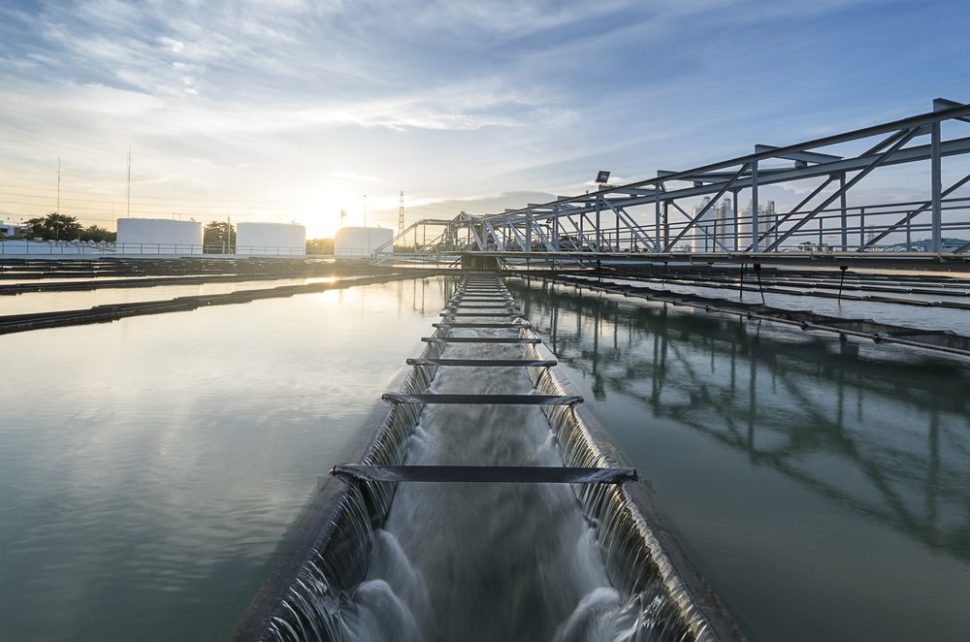This isn’t the kind of gold rush you’d expect to hear about from Switzerland–where $1.8 million USD worth of silver gets flushed down the drain every year.
Researchers testing sewage treatment plant waters became prospectors in Switzerland last month. They found traces of both silver and gold (along with other precious metals and rare-earth metals) in wastewater.
What could a transition into circular economies that reuse waste mean for Switzerland and the global tech industry at-large? At this stage, the amount of material found isn’t wildly significant. However, it does indicate that there is waste that could be an opportunity.
$1.8 million USD worth of #silver in #Swiss sewageClick To TweetTransforming Wastewater into Millions of Dollars
Long famed for exporting fine watches and protecting (typically) foreign assets, the country of Switzerland may have found what could eventually revolutionize the tech industry. The key lies in the 95 pounds of gold researchers found to be hiding in Swiss sewage annually. That’s equivalent to $1,947,925.60 USD per Goldprice.org’s price calculator as of the writing of this article on November 6th.
The most likely origin of the gold is from gold-refining plants in the country used for watch-making. Since around 70% of the world’s gold passes through their refining centers, this amount of buildup over one year isn’t that surprising.
A Golden Opportunity for Switzerland

Beyond the astonishing amount of gold, researchers also found rare-earth metals (REEs) palladium and platinum and significant amounts of silver. If so much value can be found in the country’s waste, switching to an economy that reuses waste makes environmental and economic sense. Some might say this is also an opportunity that speaks to the history of the Swiss pairing innovation with pragmatism.
Though the origin of Swiss banking secrecy regulations is hotly debated, the effects remain the same: Switzerland is a safe house. If they approach their wastewater findings with the same ambition, they could become a force in yet another strong field: circular economies.
Eawag reports that recovering the sewage waste isn’t economically viable right now, but perhaps with the right infrastructure, it could be. It has been suggested that sewers in the United States could contain gold, too. Some other countries have set a good example.
Japan already extracts precious metals from waste via burning. To be precise: Japan obtains two pounds of gold per every 1,200 pounds of ash. This matters because this yield is more than some of the highest-performing mines in the world.
What This Means for the Tech Industry

Recycling these precious metals utilizing circular economy principles could reduce scarcity for tech industry companies.
How?
Let’s start with extrapolating the numbers from the initial findings.
In searching 64 treatment plants, researchers found that 95 pounds of gold are likely wasted each year. That means that in a ten-year span, in gold alone, Switzerland could re-acquire 950 pounds of gold from merely 64 treatment plants.
950 pounds of gold would be worth $19,479,256 USD. In the grand scheme of things, after ten years, that’s not a huge amount of money.
However, Switzerland could reinvest these precious metal findings into tech and innovation in the country or other global startups. For small companies with big ideas, these dollars could be super useful. If more REEs could be extracted, Switzerland could quickly become a significant supplier, perhaps causing a mini-disruption of the global REE market. After all, China–one of the leading exporters of REEs–has adopted more stringent trade policies, restricting supply.
If the tech industry becomes increasingly dependant upon precious and rare-earth metals, circular economies may be the only solution to fight scarcity.
E-Waste as a Resource for REEs & A Sustainable Future
If REEs are key to our future and they can also be extracted from waste, at some point we must acknowledge that our economies should be constructed for the long haul. That means recycling resources that are in relatively scarce supply.
This is where circular economy philosophies come into play. By adopting wastewater metal extraction strategies and employing e-waste recycling, Switzerland and other countries could become somewhat less dependent upon external sources of precious and rare-earth metals.
As we strive to colonize other planets and create a technological world that is available to people across borders and ideologies, we must build systems that give us every chance at longevity.



















Comments (0)
Most Recent